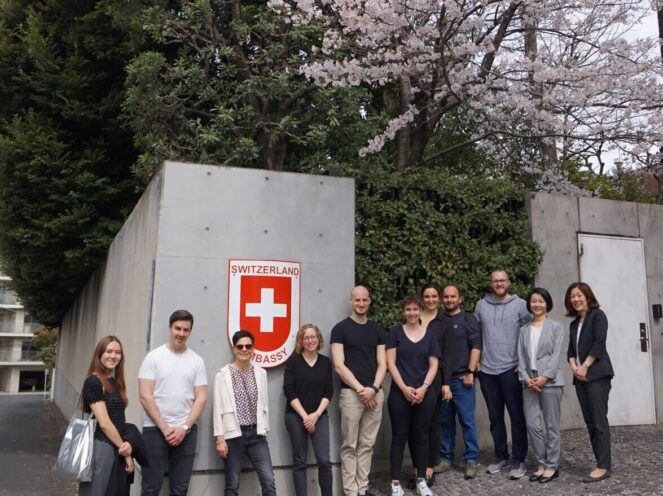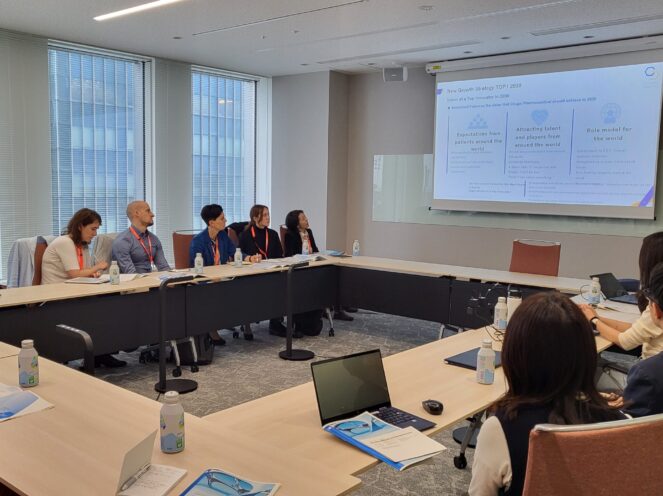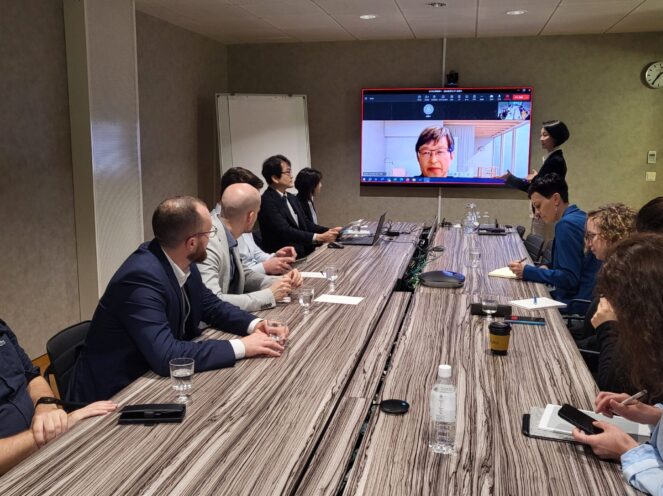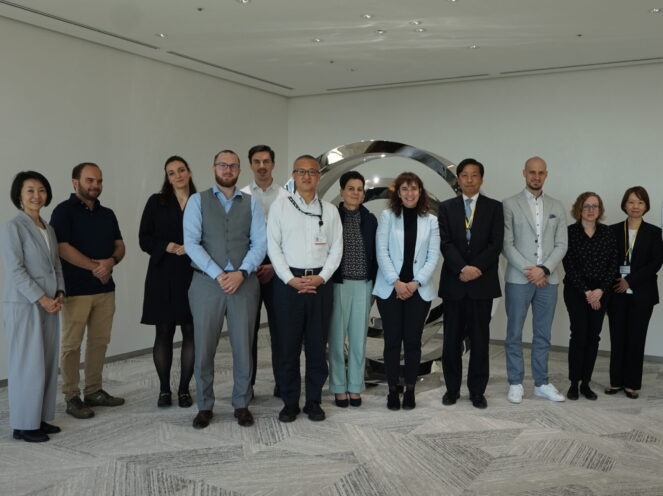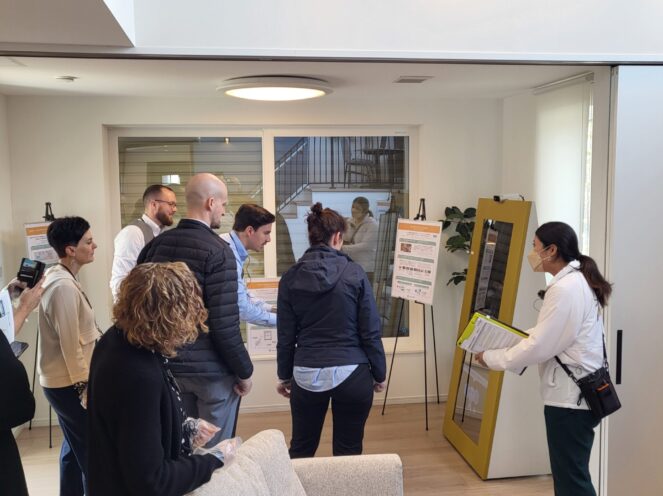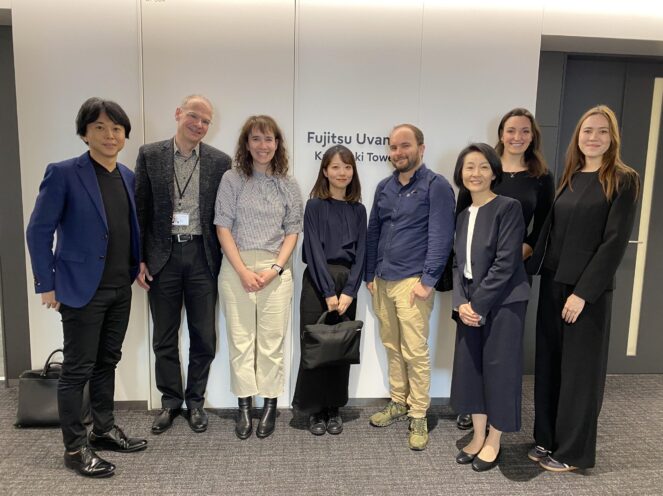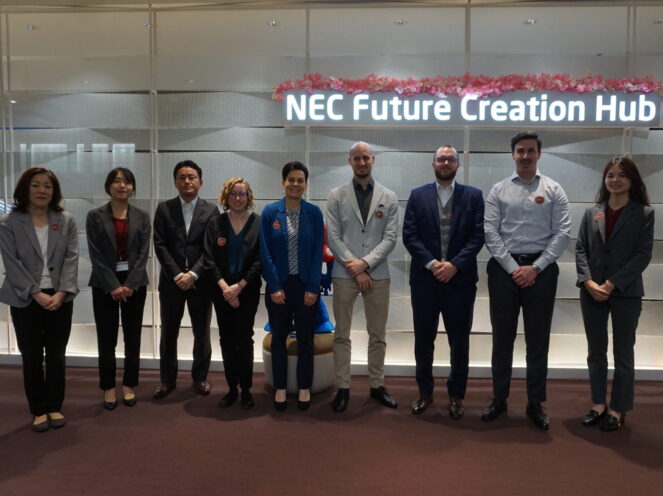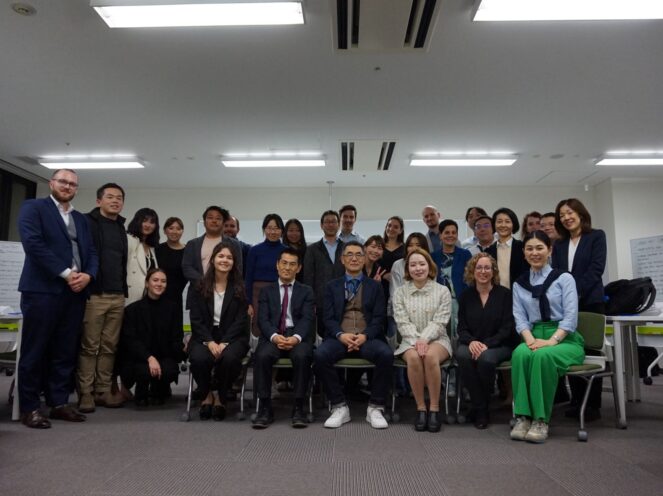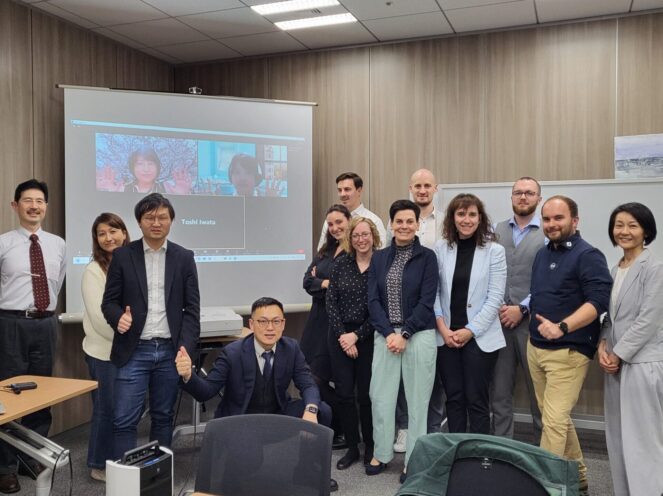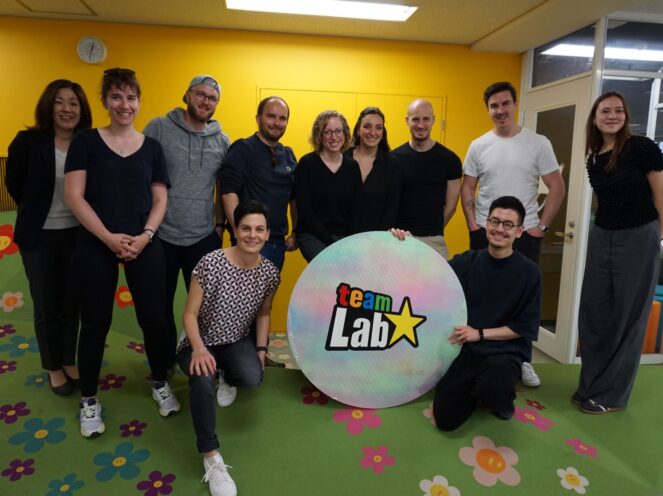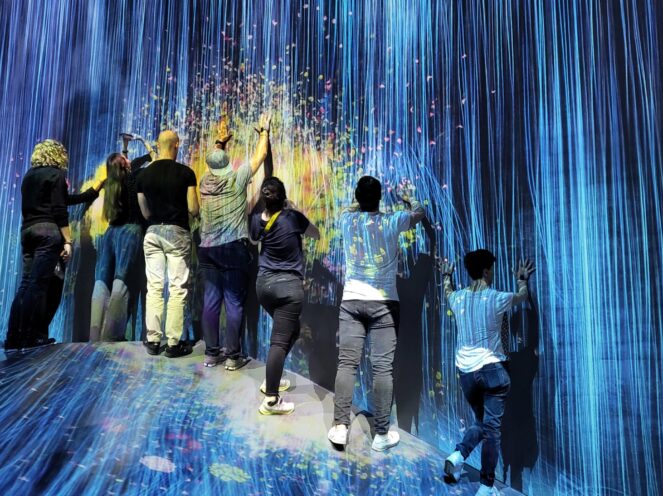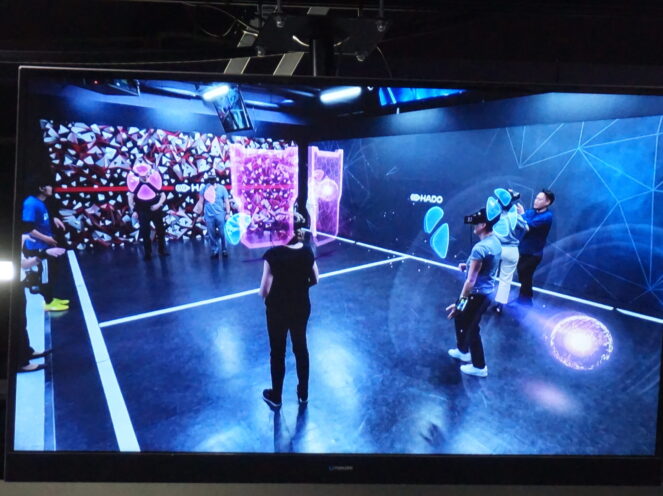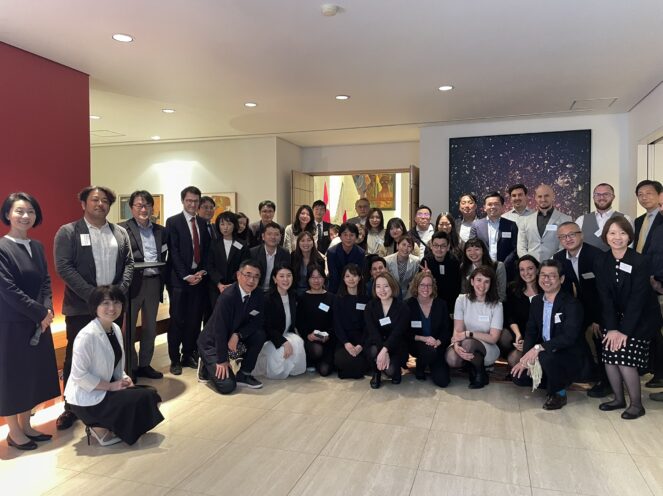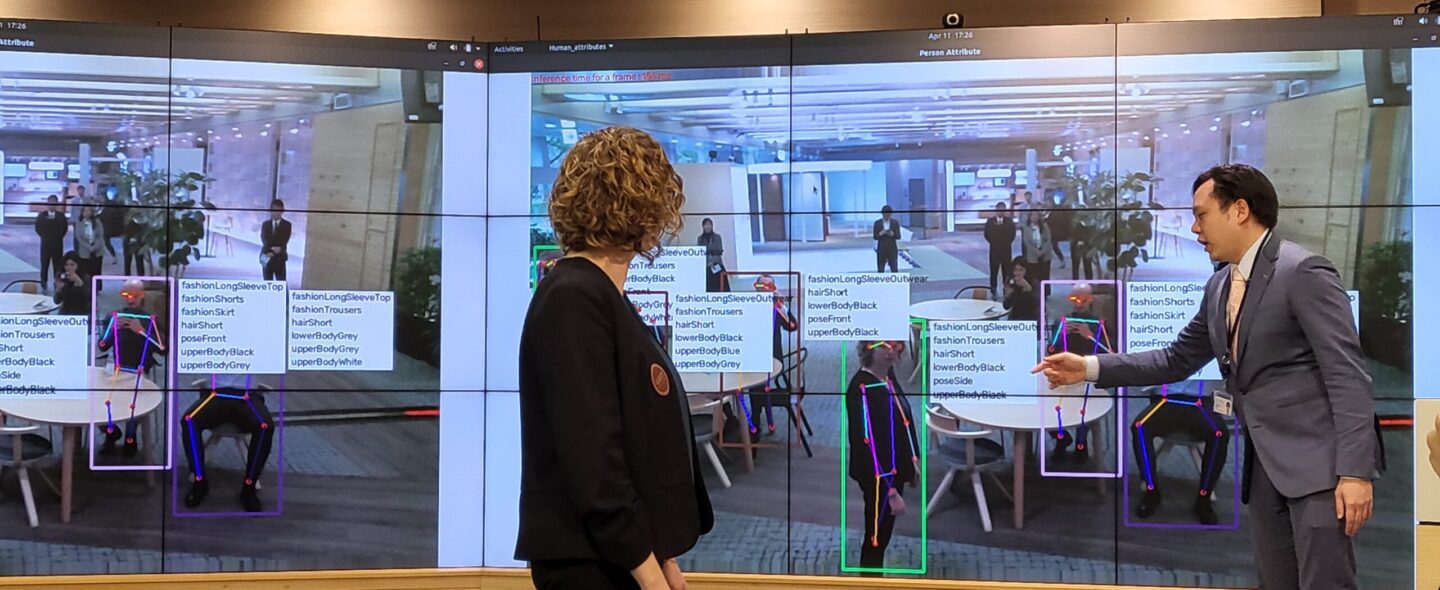
Company visits
The working students had meetings with representatives from leading organizations across various sectors such as Chugai Pharmaceutical Co., Ltd., the Japan Automotive Model-Based Engineering Center (JAMBE), Mitsubishi Heavy Industries, Ltd., the Panasonic Fujisawa Sustainable Smart Town (SST), Fujitsu Ltd., and NEC Corporation and its 2020 strategic acquisition, Swiss-company Avaloq.
During these visits, the group participated in various presentations on how digitalization is implemented to improve R&D processes, supply chains, and people’s lives, whether it be professionally or privately. Learning about the evolution of these established Japanese companies gave context and unique insight to better understand the current situation and its direction. Moreover, it was an opportunity to gain access to information on the Japanese market and economy and better understand the relationship between innovation, transformation, and sustainable change. The exchange went both ways as the delegates were also able to share their own perspectives and experiences working in Switzerland.
Academic exchanges
Two evenings of the week were dedicated to academic exchanges hosted by two top business schools in Tokyo, the Aoyama Business School (ABS) of the Aoyama Gakuin University and the GLOBIS University.
The delegation met with alumni from the Aoyama Gakuin University and exchanged views during an exercise using the Six Thinking Hats tool on the topic of the Digitalization of Osaka Station’s subway ticket gate. For the second academic meeting, the delegates met with students of the GLOBIS University who volunteered to give input talks on AI and sustainability at the workplace in Japan. Each presentation was followed by discussions on each country’s approaches to implement more sustainable practices at the workplaces and the different ethical challenges raised by the use of AI.
Engaging in a workshop and a discussion session with Japanese universities alumni and students provided a platform for direct exchange and offered perspectives from a large variety of viewpoints. These dialogues inspired all parties to consider the impact of their professional activities on both digital advancement and ecological balance.
Cultural activities
To complete the program, the group got a glance into the unique entertainment culture of Japan. Still in the digital context , the students visited the teamLab Office. The philosophy and unique concept of creating spaces in which the boundaries between the physical world and the artwork are blurred were presented. They then could experience it for themselves by visiting teamLab’s newest exhibition in Tokyo “Borderless”.
Lastly, the group discovered HADO, an Augmented Reality (AR) techno sport originating from Japan. Its concept and expansion were presented to the delegates by the founder of the game before they challenged each other in a game of HADO. This game utilizes sensors and AR technology to simulate a combat where the players attack the opposing team with energy balls and defend themselves with shields.
Through this week, the students gained valuable insights into the “to-do” list of Japanese companies for implementing sustainability and digital transformation in the workplace. This experience contributed to broadening their understanding of a different culture.
